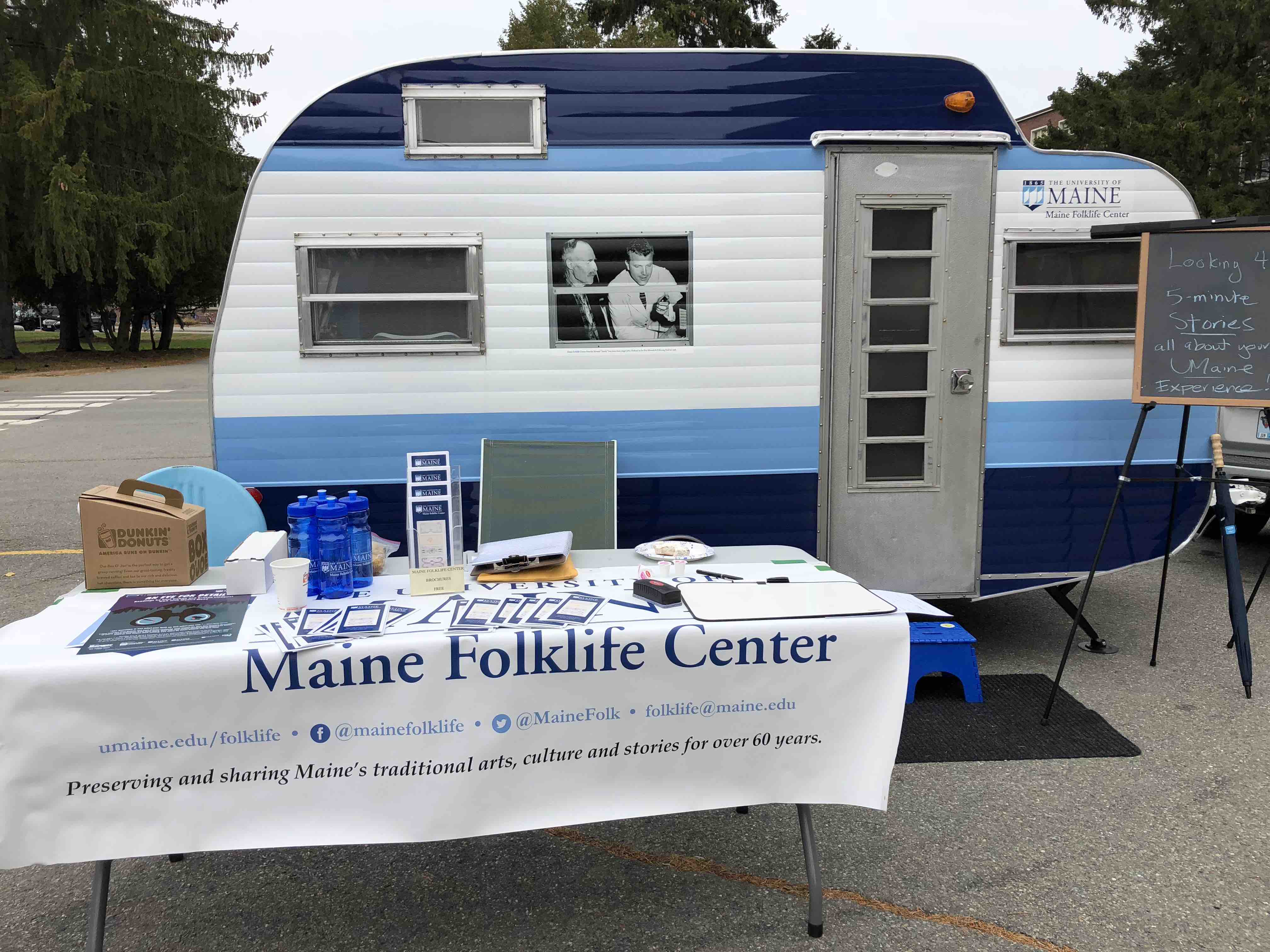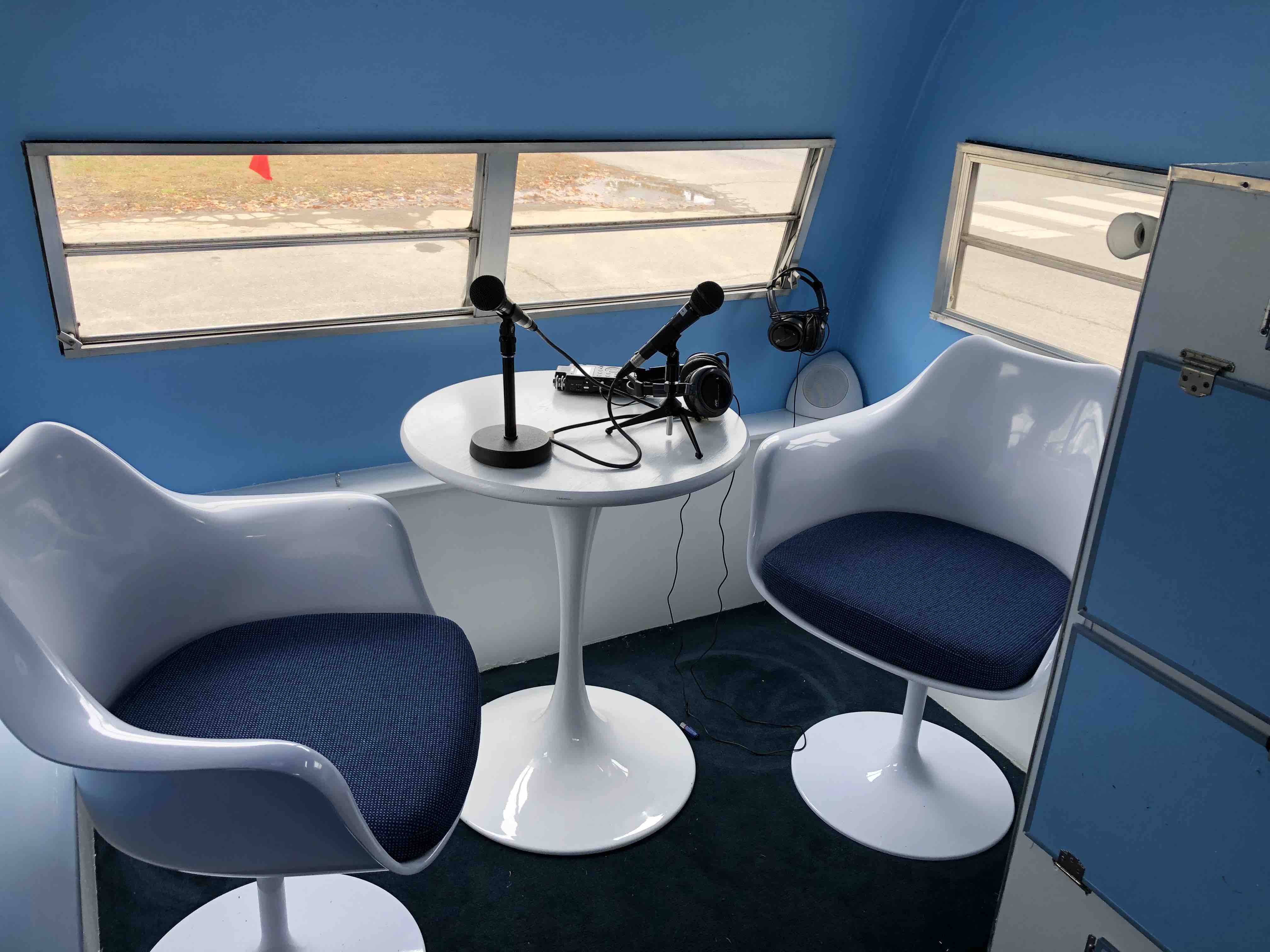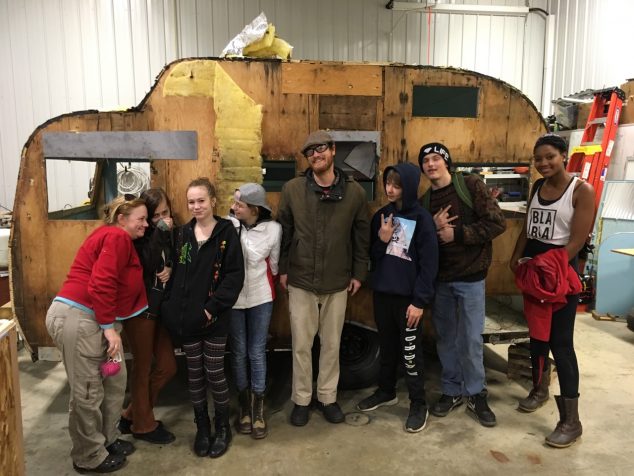
Maine Folklife Center takes its Story Wagon on the road
“Stories are the heart and soul of a place, and a way to better understand people, places and issues,” according to Kreg Ettenger, an associate professor of anthropology and director of the Maine Folklife Center at the University of Maine. “The Story Wagon continues the longstanding mission of the Maine Folklife Center to document the traditional cultures, stories and people of Maine through on-the-ground research.”
Inspired by the work of folklorist and Maine Folklife Center founder Edward ‘Sandy’ Ives, who often recorded field interviews in his VW Beetle, the year-old Story Wagon provides students and faculty associated with the Maine Folklife Center and the Maine Studies program a portable studio for conducting field recordings of interviews on a wide range of research projects.
Ettenger, who additionally serves as coordinator for the Maine Studies program, believes that the Story Wagon has also become a fun way to advertise the work of the Maine Folklife Center. “It attracts attention wherever it goes, and people often want to come over and just ‘check it out.’ This helps us spread the word about the Center and our mission and generates interest in whatever research we are doing,” says Ettenger.
Most recently, the Story Wagon was attracting attention during Homecoming Weekend at UMaine. Parked outside the Harold Alfond Sports Stadium before the football game, alumni/ae were invited into the Story Wagon to share stories of their time at UMaine.

Anthropology major Lynn Pollard, who helped recruit alumni/ae to record Story Wagon interviews during Homecoming Weekend, enjoyed how eager people were to participate. “People are happy when they see it as a part of the community,” says Pollard. “These stories help keep the lineage of the University of Maine alumni and celebrate the long life of the community.”
Along with Homecoming Weekend, the Story Wagon has also made appearances at the Sugarloaf Mountain Ski Area and during the Fiddlers and Fiddlehead Festival at the Patten Lumberman’s Museum.
“At the Fiddlers and Fiddlehead Festival last spring, I interviewed an older woman who wanted to talk about someone who was truly heroic to her: Irene Olsen Bradford, a widowed farmer who was like her second mother and later her employer, mentor and friend,” recalls Ettenger. “It was truly a moving story about the influence that one caring person can have on an individual and how important it can be to share those memories with others.”
Timothy Whiton, a graduate student in history who researches lost ski communities of Maine and New England, interviewed Sugarloaf skiers, or Loafers, during the Sugarloaf homecoming event this year with the Story Wagon.
“It was great to see a new side of this event and Loafers that I definitely would not normally interact with,” Whiton says. “Their knowledge of the mountain, their love of skiing really spoke to the important and largely intangible way skiing and ski mountains fixate in people’s lives.”
Kreg Ettenger plans to make the Story Wagon a major part of the Folklife Center’s outreach efforts, including field research as well as education and training.

“The Story Wagon is a place to document all kinds of information that local people hold, not just ‘stories’ in a literary sense, but local knowledge, beliefs, memories and understandings,” Ettenger says.
Next year, Ettenger and his students will keep the Story Wagon rolling, attending events across Maine, including the “Skee Spree” at Sunday River, and also several festivals in the Katahdin Region.
“There’s plenty of ‘history’ to be found by talking to and listening to people,” says Whiton who, as an historian, believes it’s important not only to preserve people’s stories, but to use that information to “create larger narratives of understanding.”
“It’s also fun just to watch someone speaking passionately about something that interests them,” adds Ettenger, “whether that is skiing, picking fiddleheads, or seeing their first snow as an international student from Africa—all things we heard about in the first year of the Story Wagon!”
The Maine Folklife Center serves a leading role in documenting, preserving, and sharing the rich cultural heritage of Maine. To learn more about the Center’s research, Framing Maine lecture series, or their digital archives, please visit them online.
